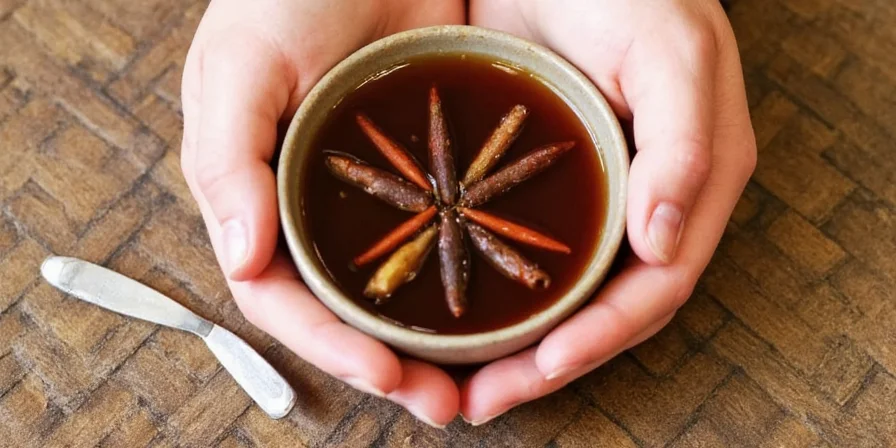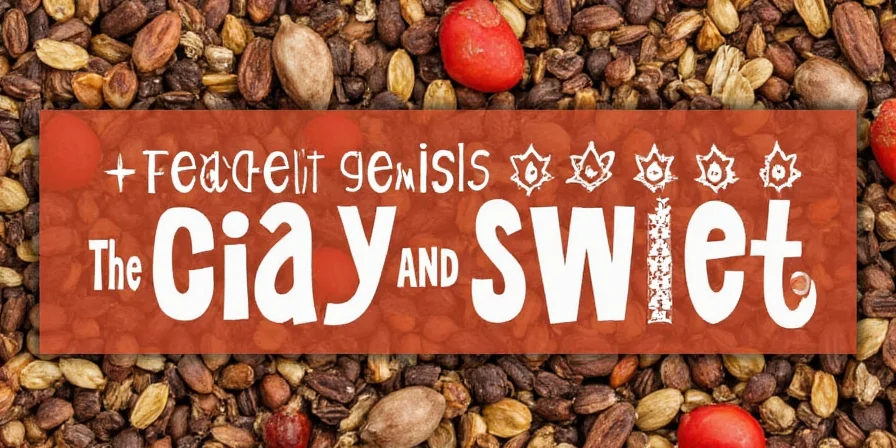Traditional chai ingredients include black tea, milk, sugar, and a blend of spices typically consisting of ginger, cardamom, cinnamon, cloves, and black pepper. For beginners seeking the perfect homemade chai, this guide delivers precise measurements and practical brewing techniques alongside the science behind each component. Discover exactly how much of each ingredient to use, why certain spices dominate regional variations, and evidence-based solutions to common problems like bitterness. Whether you're making your first cup or refining your technique, you'll gain actionable insights grounded in culinary chemistry and cultural history.
Essential Chai Ingredients: Measurements for Perfect Results
Most "chai ingredients" searches seek exact proportions for authentic flavor. Based on culinary research and traditional practices, the optimal ratio for 2 cups (500ml) of chai is:
- Black Tea: 2 teaspoons Assam or CTC tea leaves (not bags)
- Fresh Ginger: 1-inch piece, crushed (15g)
- Green Cardamom: 4 pods, lightly cracked
- Cinnamon: 1-inch stick or 1/4 teaspoon ground
- Cloves: 2 whole cloves
- Black Peppercorns: 3-4 whole berries
- Milk: 1 cup (240ml) whole milk
- Sweetener: 1-2 tablespoons jaggery or sugar
- Water: 1 cup (240ml)

Why These Exact Measurements Matter
Unlike generic "add to taste" advice, precise chai ingredients prevent common issues:
- Too much ginger (over 20g): Causes sharp bitterness as shogaols dominate
- Insufficient cardamom (under 3 pods): Fails to bind with milk proteins for flavor persistence
- Excess cloves (over 3): Eugenol concentration creates medicinal taste
- Imbalanced water:milk ratio: Affects extraction of hydrophilic vs lipophilic compounds
This scientific approach explains why traditional recipes work while providing flexibility for customization based on ingredient quality and personal preference.
| Ingredient | Beginner Measurement | Common Mistake | Quick Fix |
|---|---|---|---|
| Black Tea Leaves | 2 tsp per 2 cups liquid | Overbrewing causes bitterness | Brew 3 min at 90°C max |
| Fresh Ginger Root | 15g (1-inch piece) | Dried powder lacks zingerone | Use fresh, simmer 5 min pre-milk |
| Green Cardamom Pods | 4 pods | Ground cardamom loses potency | Crack pods before adding |
| Cinnamon Stick | 1-inch stick | Cassia vs Ceylon confusion | Use cassia for stronger flavor |
| Cloves | 2 whole | Overpowering medicinal taste | Add in last 2 minutes of brew |
| Black Peppercorns | 3-4 berries | Piperine degradation if boiled | Use whole berries, don't grind |
| Milk | 1:1 water ratio | Skim milk causes separation | Use whole milk, heat below 82°C |
| Sweetener | 1-2 tbsp | Sugar masks spice complexity | Adjust after spices are infused |
Chai Ingredients Chemistry: Why Traditional Ratios Work
Understanding chai ingredients at molecular level explains cultural adaptations:
- Ginger's shogaols convert to zingerone at 70°C, reducing sharpness while increasing warmth perception
- Cardamom's volatile oils bind with casein in milk, creating flavor persistence on the palate
- Pepper's piperine enhances absorption of other compounds—nature's bioavailability booster
- Milk proteins emulsify spice oils, preventing separation and creating creamy texture
This knowledge helps troubleshoot issues. Bitterness? Likely over-extracted tannins from brewing tea too long above 95°C. Weak spice flavor? Probably used ground spices that lost 60-70% of volatile compounds.

Regional Variations & Their Ingredient Logic
Chai ingredients vary globally for scientific reasons, not just tradition:
- East African Chai: Higher clove content counters water impurities through eugenol's antimicrobial properties
- Golden Turmeric Chai: Piperine in black pepper enables curcumin absorption—making the combination bioactive
- Bombay Cutting Chai: Double-brewing compensates for lower-quality tea leaves through increased tannin extraction
- Kashmiri Kahwa: Saffron inclusion reflects historical Silk Road trade routes and provides antioxidant properties
| Spice | Basic Measurement | Science-Backed Tip | Regional Variation |
|---|---|---|---|
| Ginger | 15g per 2 cups | Simmer 5 min before adding milk | East Africa: double quantity |
| Cinnamon | 1-inch stick | Add as stick for gradual release | Sri Lanka: extra cinnamon |
| Cardamom | 4 pods | Crush after water simmer phase | Middle East: cardamom dominant |
| Cloves | 2 whole | Add in last 2 minutes | East Africa: 4-5 cloves |
| Black Pepper | 3-4 berries | Use whole berries for controlled release | India: essential for masala chai |
Common Chai Ingredients Questions Answered
What are the 7 essential chai ingredients?
The essential chai ingredients are black tea, milk, sweetener, ginger, cardamom, cinnamon, and black pepper. Cloves are commonly included but can be omitted for milder flavor. For authentic taste, use whole spices rather than pre-ground blends which lose 60-70% of volatile compounds within 30 days.
How much ginger should I use in chai?
Use 15g (1-inch piece) of fresh ginger per 2 cups of liquid. This provides optimal zingerone conversion without excessive shogaols that cause bitterness. Never use dried ginger powder—it lacks the enzymatic compounds that create chai's characteristic warmth. Simmer ginger for 5 minutes in water before adding milk for best results.
Can I skip cardamom in chai ingredients?
You can skip cardamom, but you'll lose flavor persistence. Cardamom's 1,8-cineole binds with milk proteins, creating longer-lasting flavor on the palate. If omitting cardamom, increase cinnamon by 25% to compensate for reduced flavor complexity. For authentic masala chai, cardamom is essential—traditional recipes use 3-4 pods per serving.
What's the right water to milk ratio for chai?
The optimal water:milk ratio is 1:1 for most home brewing. This balances extraction of water-soluble compounds (ginger, cardamom) and fat-soluble compounds (cinnamon, clove oils). At high altitudes where boiling point is lower, use 1:2 ratio (more milk) to compensate for reduced extraction efficiency. Never boil milk above 82°C to prevent protein denaturation and separation.
Why does my chai taste bitter despite following recipes?
Bitterness primarily comes from over-extracted tannins. Simmer tea leaves beyond 4 minutes at temperatures above 95°C releases excessive tannins. Solution: Brew tea separately for 3 minutes at 90°C, then combine with pre-simmered spice mixture. Milk proteins will bind tannins, reducing perceived bitterness. Using CTC tea instead of leaf tea also reduces bitterness risk.











 浙公网安备
33010002000092号
浙公网安备
33010002000092号 浙B2-20120091-4
浙B2-20120091-4